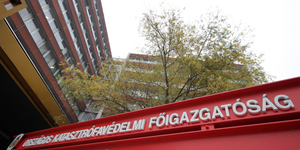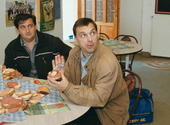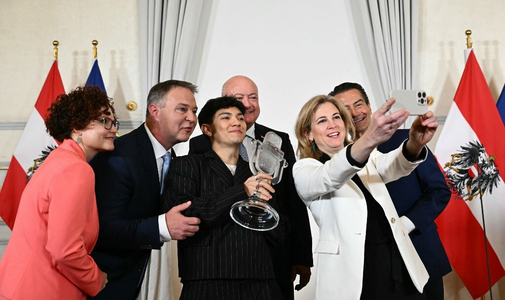Is the "average Hungarian" better or worse off than four years ago?
Mária Zita Petschnigg, an economist, examines income and consumption data in this essay.
It was a bold move by Fidesz to campaign under the slogan "We live less well now than four years ago." Bold, because the party would need to prove that quality of life declined between 2002 and 2005, even though the performance of the economy improved 17 per cent over the same period, while household consumption grew even faster, by more than 25 per cent. It is no coincidence that Hungarian macroeconomists tend rather to criticise the overconsumption of recent years. Unlike in Germany, there was little talk about the dampening effect of falling consumption on the economy. Yet the largest opposition party's campaigning strategy is not irrational. It builds to some extent on the Hungarians' traditional negativity, poor memory and tendency to look back through rose-tinted spectacles. This would seem to be proven by a report to be published next week by Tárki, which shows that 25 per cent were happy with their standard of living five years ago, compared to 31 per cent today. But 36 per cent of people remember telling pollsters five years ago that they were satisfied. This is exacerbated by a solid mass of unemployed and the genuinely poor prospects of those who have been unable to adapt to the loss of the deceptive security and comfort offered by the Kádár regime.
The quality of life indicators nonetheless contradict the picture given by the opposition. Despite Fidesz campaign posters referring to soaring prices, inflation at the end of 2005 was almost at the price stability level. Between 2002 and 2005, consumer price increases were at two thirds of the level of four years earlier. There was even deflation in the realm of durable consumer goods, whose average price fell 6 per cent. It is of course true that families do not buy computers or televisions every day, but fundamental staples rose in price much more slowly than they had in the previous four year period.
Food price inflation was 60 per cent lower, domestic energy and heating prices rose a third more slowly.
Spending on property and on consumer durables grew fastest. This growth affected the poorest strata as well. Homes became larger, they became less cramped, public utilities became more widespread. Changes in the previous parliamentary cycle were dramatic, those in the current cycle less marked, but they are still the result of a very heavy programme of state subsidy, whose dark side is growth in household debt and an increased burden on the budget.
(...)
Fidesz's claim that we "live less well" is contradicted by the data.
But the indicators still do not prove that "we are living well". The standards of living of the developed world are still far away, yet people increasingly assess their condition by that yardstick. It is also certain that things have got worse for some over the past four years. Statistics represent averages, and they never truly reflect the facts of individual lives - yet it is these individual lives on which the statistics are based.

















